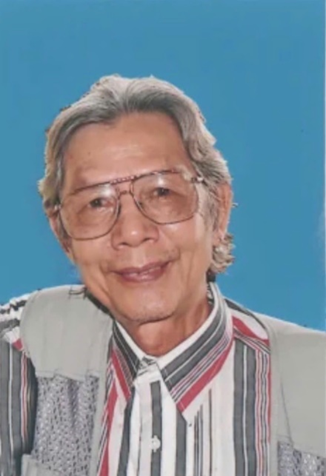
In 1955, when musician Lu Nhat Vu left school, friends, and student life to go to the North to join the resistance, I was just a boy with a tuft of hair. After many years of working, fighting, and studying in the socialist North, he graduated from the Composition Department of the Vietnam Conservatory of Music (1962) and officially became a musician.
At that time, although he was still working in Hanoi, the general offensive and uprising in the Tet Mau Than period of our forces hit straight into the center of Saigon city, causing the North, the great rear, to be filled with joy, urging the musician to write the song Saigon Girl Carrying Ammunition, a song that has been with him through the years, leaving a deep impression during the period of resistance against the US, making the name of musician Lu Nhat Vu.
In 1970, assigned by the organization, musician Lu Nhat Vu crossed Truong Son to return to the Southern battlefield to work and fight. This was an extremely difficult and arduous period compared to the days living in the heart of the capital Hanoi. Having fought directly on the Southern battlefield, the musician's spirit seemed to be tempered more in the smoke of bombs and bullets.
During this time, the musician and poet Le Giang created many valuable songs, promptly encouraging the army and people of the South and the whole country to fight steadfastly until victory, specifically: The Rach Gam Girl (1971), The Village Song (1972), Remembering the Liberation Army (1972), Tomorrow on This Land (1973), The Liberation Army Song (1974)...

After April 30, 1975, the South was completely liberated and the country was unified. The musician worked in many different positions and retired in 1997. After thirty-eight years on the sixth floor of an apartment building in Ho Chi Minh City, and three years moving to Xom Chai - Phan Thiet City, in early 2015, he and poet Le Giang decided to return to their hometown of Thu to live out their peaceful old age. Since then, Mr. and Mrs. Nam (Lu Nhat Vu - Le Giang) have become my "neighbors".
His house and mine were in the same ward, just different neighborhoods. From then on, I became a “long-time friend”, a “neighbor” and also a close colleague of my brother and sister in my hometown of Thu. Every week, at least once, I stopped by his house so that we could drink tea together, talk about life and music under the purple bougainvillea trellis in front of his house.
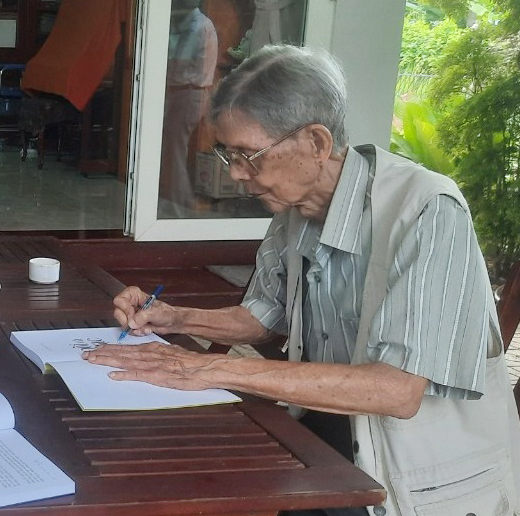
Living close to and interacting with you, I feel that you have a kind heart, a tolerant and hospitable spirit, and are especially open to everyone and everything. That is why you have many people who love and cherish you. Anyone who has ever visited your house and interacted with you has the same feeling as if they were coming home, as if they were meeting a close relative in a family. Many of your friends, although living far away, when they have the chance, they all take the time to visit the small house with the bougainvillea tree to enjoy that familiar feeling, filled with love.
Every time I meet and talk to him, I love to hear him talk about his childhood in his hometown of Thu. Born and raised in Thu Dau Mot, stories about his childhood come back to me in my childhood memories.
He said that when he was young, he loved swimming and diving in the Cho Thu River (Saigon River). Children his age would wait for the low tide every day to wade across Cu Chi to catch shrimp, fish or pick water mimosa to make pickles, a familiar rustic dish of the villagers here. The sound of waves and the singing of people rowing boats carrying sugarcane on the river and the rustling sound of the poplar trees on the banks of the Bach Dang River forever echoed in his childhood subconscious. The clattering of horse hooves of hearses going back and forth on the road still beat a steady rhythm in his memories of his youth. The windy and rainy afternoons made the petals of the oil flowers spin and fly, swirling in his memories of the countryside afternoons until he grew up.
The most beautiful part of a person’s life is probably during their student years. At the age of over eighty, musician Lu Nhat Vu still vividly remembers the unforgettable memories of his first days at school. He attended kindergarten at teacher Duong Ngoc Tho’s house in Gieng May hamlet (now Pham Ngu Lao street, Hiep Thanh ward, Thu Dau Mot city, Binh Duong province). Later, teacher Tho opened Minh Tam primary school on Lo Chen street, opposite Nguyen Trai private school at that time. A few years later, teacher Tho escaped to join the resistance war in the Southeast region.
Musician Lu Nhat Vu and teacher Tho's son (named Duong Ngoc An) were classmates, and later both crossed the border to the North. Mr. An was a railway engineer, a member of the militia on the trains from Hanoi to the old zone IV. Mr. Duong Ngoc An sacrificed his life on September 2, 1967 in Quang Binh.
According to him, the teacher who left a deep impression on him during his childhood was Mr. Phap. In the 1940s, anyone who had attended elementary school in Thu Dau Mot was “terrified” every time they remembered Mr. Phap (students often secretly called him Old Man Chuon). Mr. Phap always taught and trained his students according to very strict rules. Almost all students were afraid of his blackboard ruler. The most annoying thing was the subject of dictation (French spelling) taught by him. If he “checkmated” anyone (called them to the board to write as an example), they were considered “sacrificed”. The board was turned inside out to prevent the whole class from “cheating”. The teacher read each sentence three times, and after a few sentences, he would tap the ruler on the table with a “clack”. All students had to put their writing down, sit up straight, and were not allowed to ask questions or glance around. Any game whose plural lacks an “s” or whose feminine lacks an “e” is considered a “victim” of the blackboard ruler.
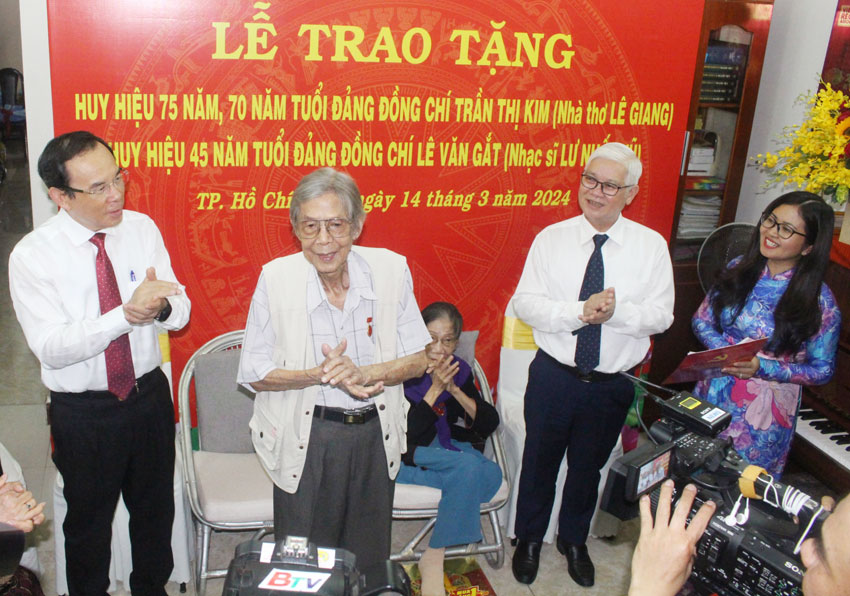
In 1952, Lu Nhat Vu was admitted to Nguyen Trai Private High School, where Mr. Phap was the principal. The teachers at that time were Mr. Sanh (Mr. Phap's son), Mr. Pho, Mr. Chau, Mr. Hoang and two teachers with "artistic blood": Mr. Le Thuong and Mr. Pham Duy Nhuong (musician Pham Duy's brother). Every week, Mr. Le Thuong took the location bus from Saigon to Thu Dau Mot to teach Literature and Version (translating famous works from Vietnamese to French and vice versa), while Mr. Pham Duy Nhuong taught French and Math. Mr. Nhuong's family stayed on the first floor of Nam Bac Hiep restaurant, next to the bus station and the clock tower of Thu market. Occasionally, he told his students about his memories of the resistance years in the North. When he was in the mood, he sang and played the guitar the song Nhac Duong Xa, which he himself composed. Mr. Vu was lent a book called Basic Music Theory in French by Mr. Pham Duy Nhuong. This was the first time Mr. Vu was exposed to basic knowledge of music, which sparked the hidden musical talent in the student, who later became musician Lu Nhat Vu.
After the country's reunification, musician Lu Nhat Vu and poet Le Giang, like "tireless birds", continued to tirelessly search for "lessons" from the treasure trove of Southern folk music passed down by "barefoot" teachers. They were "country people" with muddy hands and feet, working as hired laborers, planting rice for hire or rowing boats to sell on the river, going up and down the bay to become merchants. Musician Lu Nhat Vu and his life partner - poet Le Giang followed Uncle Ho's teachings: "Study at school, learn from books, learn from each other and learn from the people", silently and quietly "Searching for invisible treasures".*
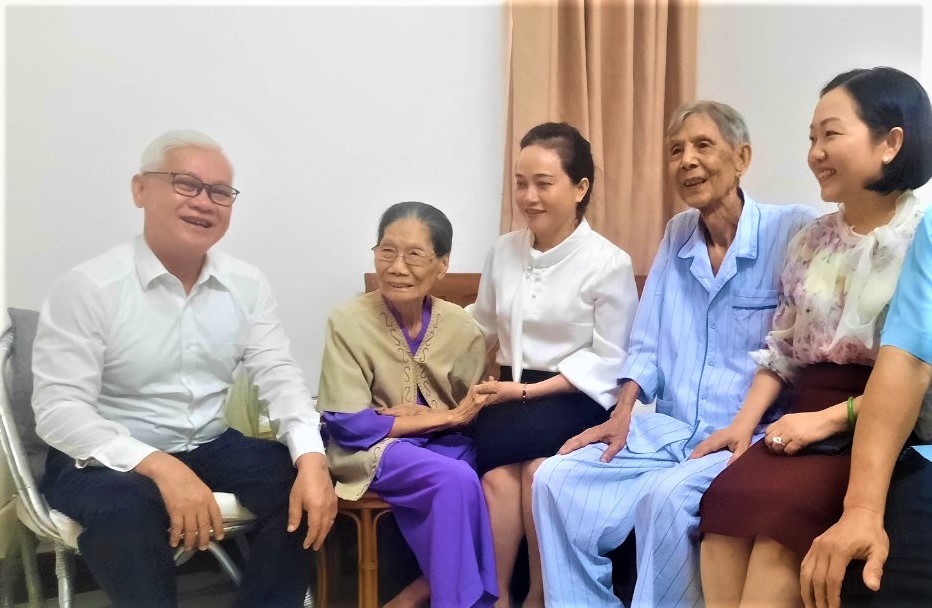
The musical style of the Vietnamese people is the folk material. This precious heritage has been created, refined and passed down by pioneering generations for thousands of years. Many generations of Vietnamese people have nurtured the souls of their descendants with these refined folk melodies. Talented musicians in our country have also used and enriched this precious resource. Perhaps that is why most of the works of musician Lu Nhat Vu carry folk material from the highlands to the plains, from the mountains to the river countryside. It can be seen that the folk material has also contributed to creating a unique style for his music.
In the trend of global economic integration, Western music, Korean music, rappers, hip hop... are increasingly dominating traditional music. How many people are still passionate about preserving and preserving traditional music identity like you? I still remember one time when I was talking to you about the current trend of youth music and traditional music, your face looked sadly into the distance and repeated to me a Khmer proverb: "Don't see a storm coming and pour out the water in the jar!" Who will you hand over that jar of water to?!
*The title of a book by Lu Nhat Vu - Le Giang
Vo Dong Dien
Source: https://baobinhduong.vn/nhac-si-lu-nhat-vu-nguoi-anh-dong-huong-than-thiet-cua-toi-a344366.html


![[Photo] Speeding up construction of Ring Road 3 and Bien Hoa-Vung Tau Expressway](https://vstatic.vietnam.vn/vietnam/resource/IMAGE/2025/3/31/f1431fbe7d604caba041f84a718ccef7)

![[Photo] 2nd Conference of the Party Executive Committee of Central Party Agencies](https://vstatic.vietnam.vn/vietnam/resource/IMAGE/2025/3/31/8f85b88962b34701ac511682b09b1e0d)
![[Photo] Prime Minister Pham Minh Chinh receives delegation of leaders of US universities](https://vstatic.vietnam.vn/vietnam/resource/IMAGE/2025/3/31/8be7f6be90624512b385fd1690124eaa)

![[Photo] General Secretary To Lam receives US Ambassador to Vietnam Marc E. Knapper](https://vstatic.vietnam.vn/vietnam/resource/IMAGE/2025/3/31/5ee45ded5fd548a685618a0b67c42970)




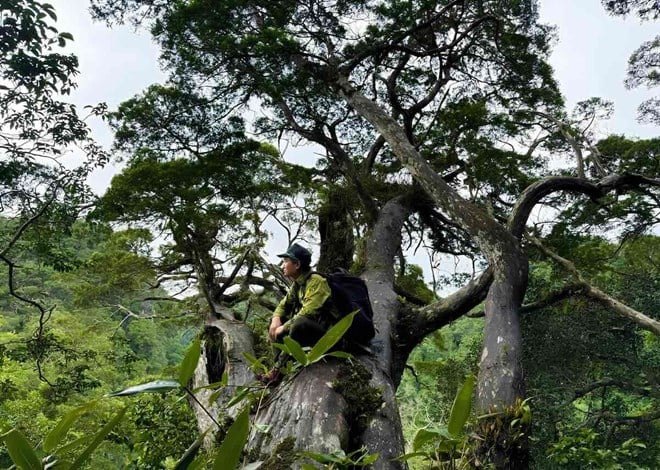
































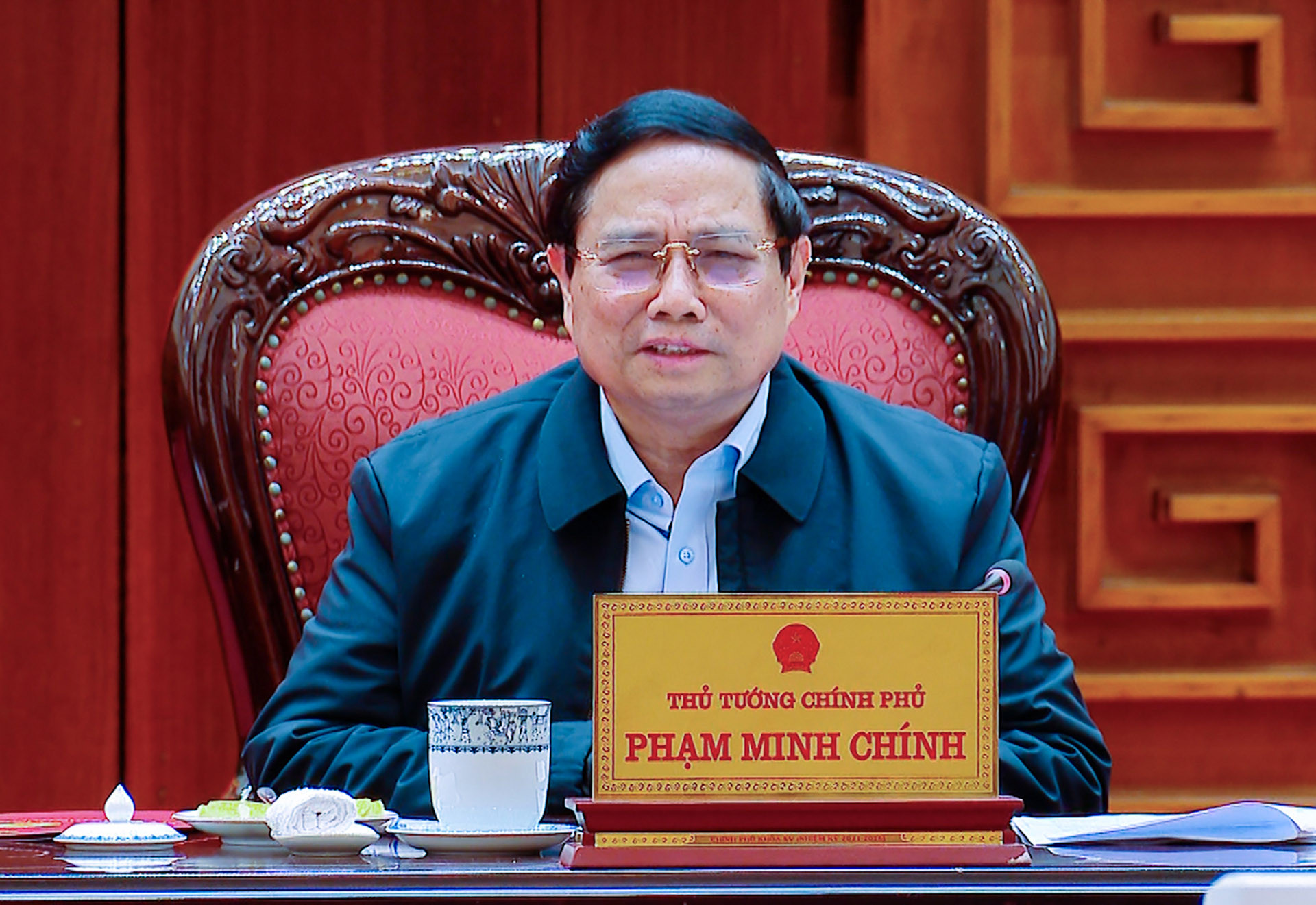


















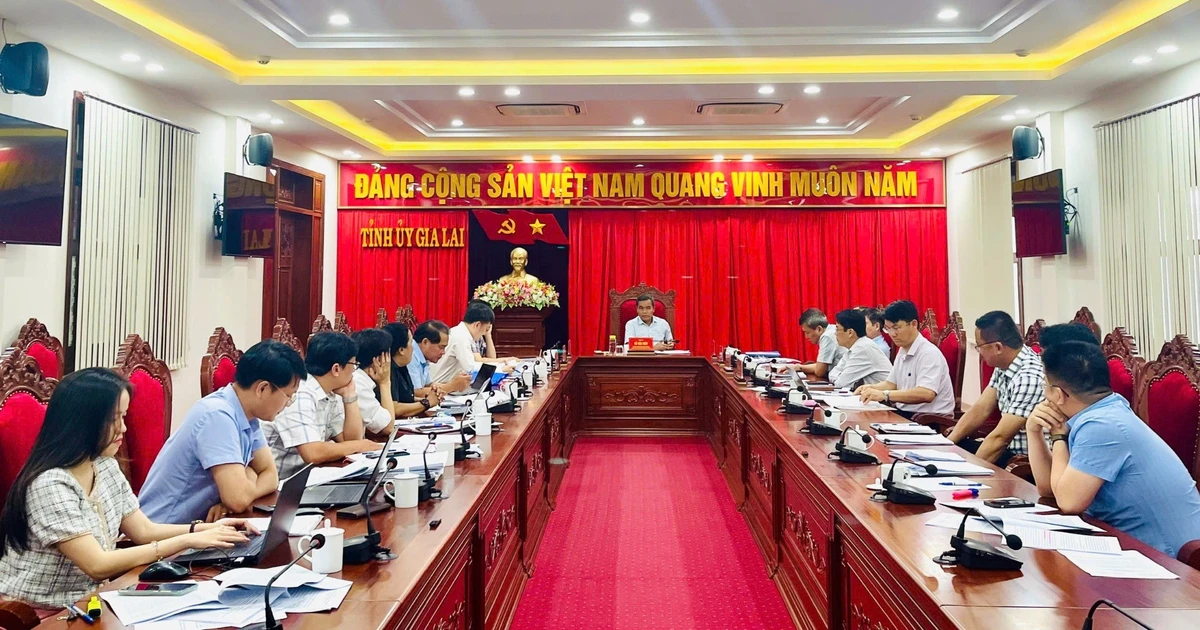

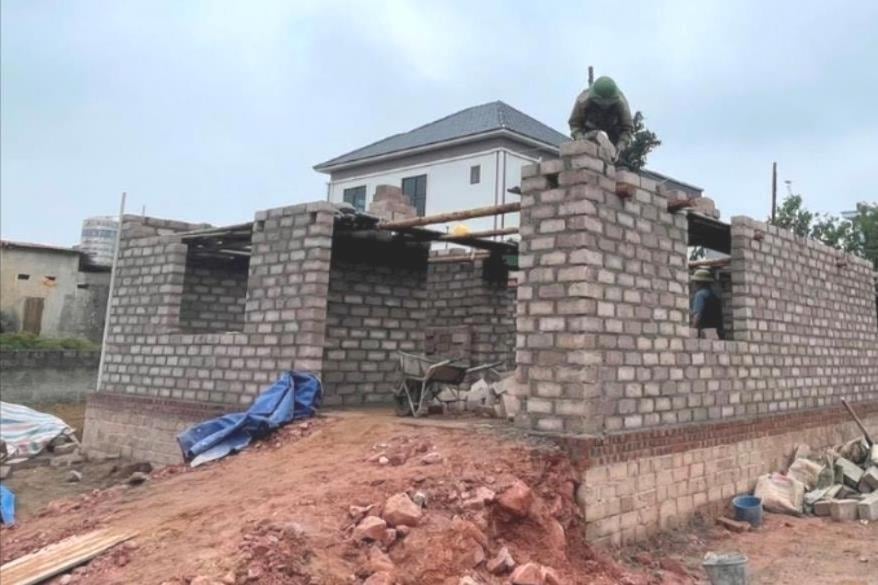













![[REVIEW OCOP] An Lanh Huong Vet Yen Cat](https://vstatic.vietnam.vn/vietnam/resource/IMAGE/2025/3/27/c25032328e9a47be9991d5be7c0cad8c)

Comment (0)